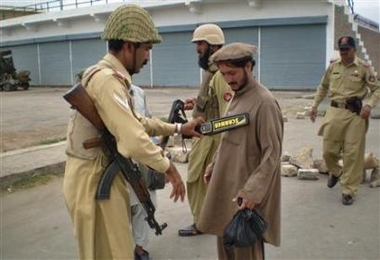War on terrorism leads to rights abuses
(Agencies)
Updated: 2007-11-19 23:48
Updated: 2007-11-19 23:48
KAMPALA - Torture, beatings, executions, racist stereotyping and intrusive surveillance are among the abuses countries are committing in the name of fighting terrorism, a rights watchdog said on Monday.
The Commonwealth Human Rights Commission said since the 9/11 attacks, many nations had been using the military for police work in the so-called "war on terror," leading to brutal policing techniques, including extra-judicial killings.
The Commission made the allegations in a report which reviews human rights in the 53-nation body before the biennial Commonwealth Heads of Government Meeting (CHOGM).
"Until recently, torture was condemned as a gross violation of human rights ... fear of terrorism and the desire to respond to it is steadily undermining this absolute prohibition," the report said.
Among the offenders it named was Pakistan, which risks suspension from the Commonwealth because of President Pervez Musharraf's imposition of martial law. Also mentioned was Uganda, where military police this year raided the High Court to seize bailed opposition supporters accused of treason.
"The extra-judicial killing of 'terrorists' provides an easy way of eliminating suspects ... often, these 'terrorists' turn out to be children, dissidents, unarmed and peaceful protesters," the report said.
It said the right not to be jailed without charge was slowly being eroded. In Tanzania and Bangladesh, suspects can be held indefinitely without trial.
In Malaysia, Singapore and Brunei they can be detained for longer than 700 days, while Britain is considering an extension of the 28-day period suspects can be held without charge.
"The consequences of taking people into custody without cause, for long periods of detention, are made even direr by laws that restrict access to counsel," the report said.
"Positive profiling" of terror suspects has spawned racist stereotypes, it said. In Britain, people of south Asian descent are 30 percent more likely than others to be stopped by police.
"Anti-terrorism has resulted in the deepest compromises of our member states on human rights," Yash Ghai, an expert on rights and law at Hong Kong University, told delegates at a Commonwealth People's Forum.
Uganda will host CHOGM on Friday, after a state visit from Britain's Queen Elizabeth, the head of the Commonwealth.
The report notes that despite 13 international counter-terrorism conventions and resolutions, countries have failed to agree on a definition of terrorism.
|
|
|
||
|
||
|
|
|
|
